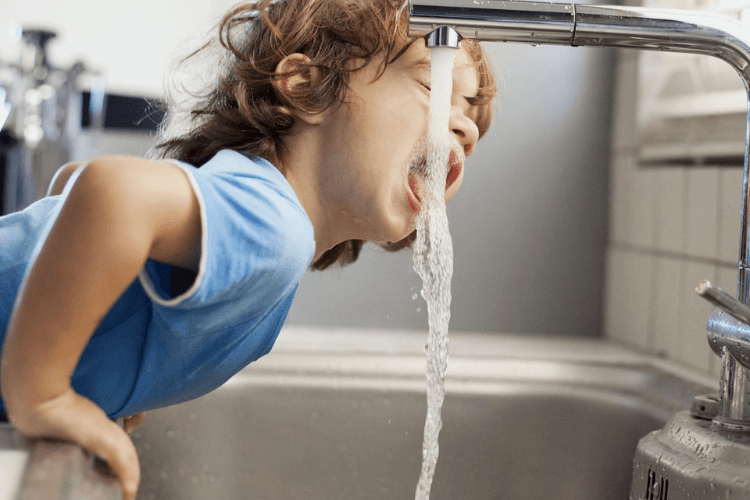Hedonistlabs laboratory
Proactive or reactive hydration? Waiting until you're thirsty to drink may seem natural, but is this method really adapted to our current health needs? Hydration is more than a response to thirst; it's a preventive necessity that influences our daily well-being. In this blog: Why it's essential to understand our body's signals and best practices for staying hydrated.
Should I really wait until I feel thirsty before deciding to drink, or is there a better way to manage my daily hydration?
Hydration is an essential aspect of our daily health, often neglected or underestimated. The question of whether we should wait until we're thirsty to hydrate is a common but crucial one.
Thirst is a fundamental physiological sensation, often described as a feeling of dryness in the mouth and throat, accompanied by an intense desire to drink. It's our body's way of telling us that it needs water to maintain its vital functions.
Hydration, on the other hand, refers to the action of providing our bodies with the water they need to function optimally. Water is essential for many physiological processes, such as regulating body temperature, transporting nutrients, eliminating waste and lubricating joints. In fact, around 60% of an adult's body weight is water, underlining the crucial importance of maintaining good hydration levels for optimal health.
HYDRATION REGULATION MECHANISMS
- Thirst signals sent by the body: When our body begins to feel slightly dehydrated, signals are sent to the brain to signal the need to hydrate. These signals are generally felt as a sensation of thirst, prompting us to seek out and consume fluids.
- Physiological mechanisms for regulating hydration: Once we've consumed fluids, several physiological mechanisms come into play to regulate hydration in our bodies:
- Intestinal absorption: The water we drink is absorbed in the small intestine and passes into the bloodstream, increasing blood volume and osmotic pressure.
- Renal water retention: The kidneys play a crucial role in regulating water balance by adjusting the amount of water reabsorbed into the blood and excreted in the urine. Antidiuretic hormone (ADH) is released by the pituitary gland to signal the kidneys to conserve water when the body is dehydrated.
- Eliminating excess water: When we have enough water in our bodies, the kidneys adjust urine production to eliminate excess water while preserving essential electrolytes.
RISK OF DEHYDRATION
- The health consequences of dehydration: Dehydration can have harmful effects on our health in both the short and long term. Here are some of the possible consequences:
- Decreased physical and mental performance: Dehydration can lead to reduced stamina, concentration and coordination, compromising both physical and mental performance.
- Increased risk of disease: Insufficient hydration can increase the risk of developing health problems such as kidney stones, urinary tract infections, gastrointestinal disorders and cardiovascular disease.
- Impact on skin and organs: Skin can become dry, dull and prone to irritation when chronically dehydrated. In addition, vital organs such as the kidneys can suffer from the lack of water needed to function properly.
- Groups at risk of dehydration: Certain categories of people are more likely to suffer from dehydration than others:
- Children: Due to their relatively smaller size and weight compared to adults, children have a lower total body water volume, making them more vulnerable to dehydration, especially if they are active or have illnesses such as diarrhea or fever.
- The elderly: With age, the sensation of thirst often diminishes, which can lead to insufficient hydration. What's more, some medications commonly taken by the elderly can have diuretic effects, increasing the risk of dehydration.
- Athletes: Intense physical exercise increases water loss through perspiration, which can quickly lead to dehydration if the water lost is not adequately replaced.
- Sick people: Illnesses such as fever, diarrhea or vomiting lead to significant losses of water and electrolytes, which can quickly lead to dehydration if left uncorrected.
It is therefore essential for these at-risk groups, as well as for all individuals, to carefully monitor their hydration levels and ensure they drink enough water throughout the day.
MYTHS AND REALITIES ABOUT MOISTURIZING
- Examine preconceived ideas about hydration and thirst:
- Myth: You have to wait until you're thirsty to hydrate. Reality: Although thirst is an important signal of dehydration, it can sometimes be delayed. Relying solely on the sensation of thirst can lead to insufficient hydration, especially in situations where water losses are high, such as during intense physical activity or in hot weather.
- Myth: Drinking plenty of water is always better for your health. Reality: Drinking too much can also be problematic, leading to a dilution of electrolytes in the blood, a condition known as hyponatremia. It's important to maintain a balance by drinking enough to stay hydrated, but not too much.
- Demystifying mistaken beliefs about the ideal time to hydrate:
- Myth: It's better to drink large quantities of water all at once. Reality: It's more effective to hydrate regularly throughout the day than to consume large quantities of water at a time. This helps maintain an optimal water balance without overloading the kidneys.
- Myth: Drinking energy drinks or sodas can compensate for water loss. Reality: Energy drinks and sodas can contain high levels of sugar, caffeine and other additives that can actually contribute to dehydration. There's no substitute for pure water to effectively rehydrate the body.
By demystifying these erroneous beliefs, it becomes easier to understand how to maintain good hydration levels and make informed decisions about how and when to hydrate.
HYDRATION REQUIREMENTS FOR DIFFERENT SITUATIONS
- Climate Climate : High temperatures, humidity and exposure to the sun increase water loss through transpiration, necessitating an increase in water intake to compensate.
- Physical activity: Intense exercise leads to increased body heat production and sweating, which can result in a significant loss of water and electrolytes. People involved in physical activity therefore need to hydrate more to maintain optimal fluid balance.
- Health Some medical conditions, such as fever, diarrhea or vomiting, lead to significant losses of water and electrolytes, requiring increased water intake to prevent dehydration.
- Age Water requirements vary with age. Infants, children and the elderly may have different hydration needs due to their size, weight and ability to regulate body temperature.
General hydration recommendations:
- For most healthy adults, it's recommended to drink around 8 glasses of water a day, equivalent to about 2 liters. However, individual needs may vary depending on the factors mentioned above.
- During exercise, we recommend drinking water before, during and after physical activity to maintain hydration and compensate for fluid loss through perspiration.
- In the case of medical conditions or special circumstances such as extreme heat, it's important to carefully monitor your hydration levels and drink enough to compensate for increased water loss.
THE IMPORTANCE OF PREVENTIVE HYDRATION
Preventive hydration means drinking water regularly throughout the day, even if you don't feel thirsty. This has several advantages:
- Preventing dehydration: By anticipating our body's need for water, we avoid the risk of dehydration, especially in conditions such as heat, intense physical exercise or illness.
- Maintaining bodily functions: Adequate hydration helps our bodies function properly, including regulating body temperature, digestion, blood circulation and elimination of toxins.
- Improved physical and mental performance: Being well hydrated can increase endurance, concentration and alertness, which can improve both our physical and mental performance. To maintain adequate hydration without feeling thirsty, we recommend drinking water regularly throughout the day, keeping a water bottle handy and drinking even before feeling thirsty. It's also a good idea to eat water-rich foods, such as fruit and vegetables, to supplement our water intake.
HYDRATION AS A LIFESTYLE HABIT
Incorporating proper hydration into one's daily routine can be done by adopting simple strategies such as keeping a water bottle handy, setting reminders to drink regularly, and choosing hydrating beverages over sodas or sugary drinks. Hydration health education is essential to make individuals aware of the benefits of adequate hydration, and to help them make informed decisions about their fluid intake.
It's essential to understand that maintaining a good level of hydration is more than just a response to thirst. It's a fundamental lifestyle habit that helps maintain bodily functions, improve physical and mental performance, and prevent health complications linked to dehydration.
As a result, everyone is encouraged to become aware of their own hydration needs and adopt strategies to incorporate adequate hydration into their daily routine. By educating and raising awareness of the importance of hydration, we can all help promote better health and optimal well-being for all.




